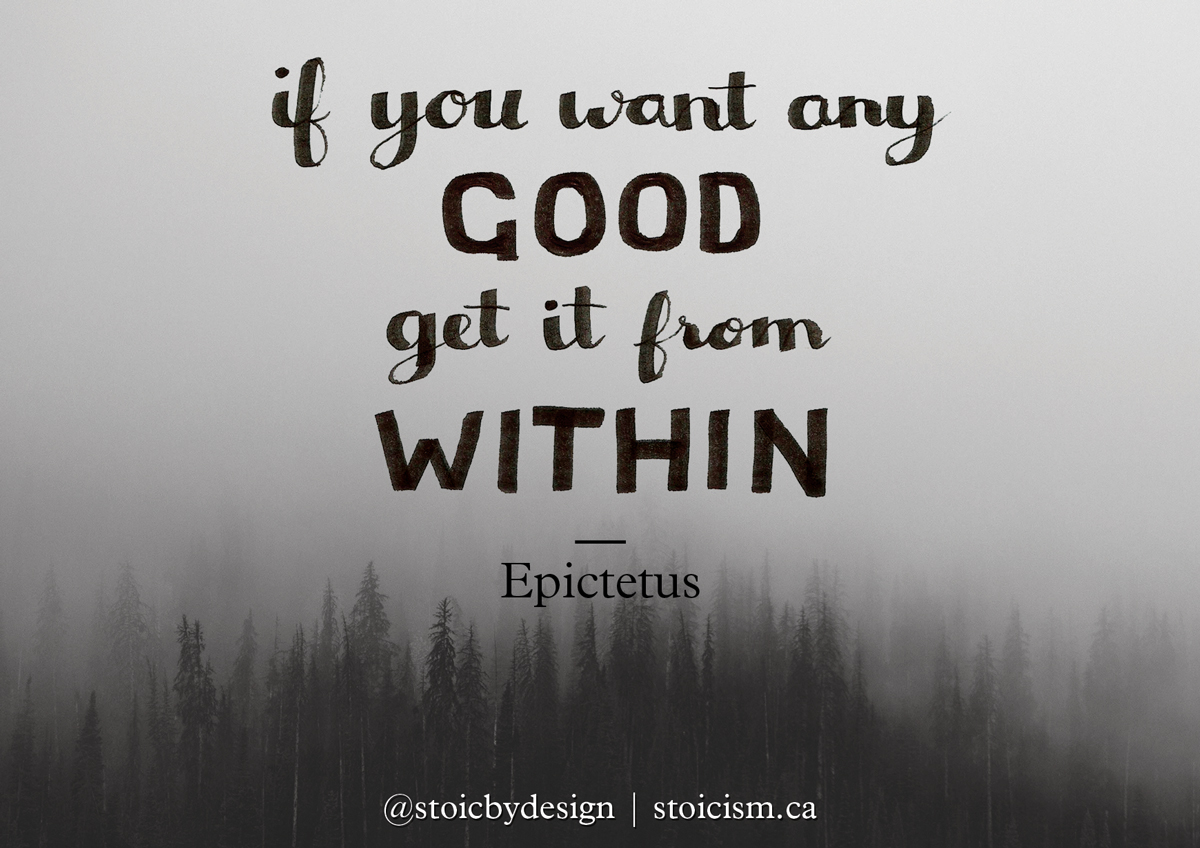Get Good From Within
Epictetus reminds us that, like most things of virtue, good can only come from within. I take this to mean if we rely on the actions of others to bring “good” into our lives than we may be disappointed; we are not in control of their thoughts or actions.
Principles Quotes